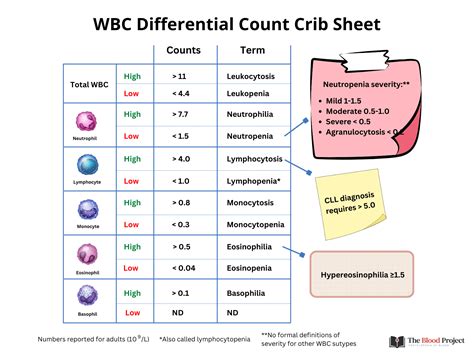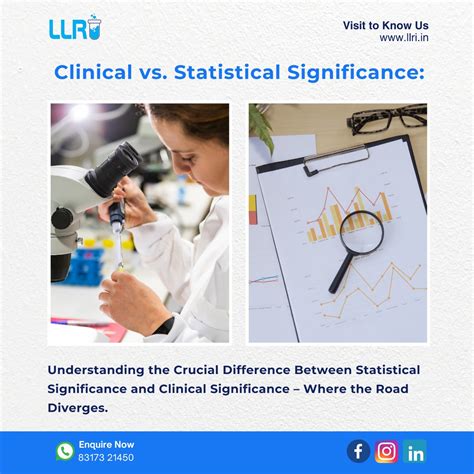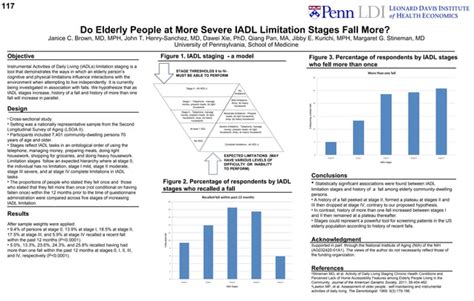Intro
Complete Blood Count (CBC) with differential is a crucial diagnostic tool that provides valuable insights into the health of an individual. The CBC test measures various components of the blood, including red blood cells, white blood cells, platelets, and hemoglobin. The differential count, also known as the diff, is a more detailed analysis of the white blood cells, which helps to identify the specific types and their proportions. Understanding the meaning and significance of a CBC with differential is essential for healthcare professionals to diagnose and manage various medical conditions.
The importance of a CBC with differential lies in its ability to detect abnormalities in the blood cells, which can indicate a range of health issues, from infections and inflammation to blood disorders and cancer. The test is commonly used to monitor patients with chronic conditions, such as anemia, leukemia, or lymphoma, as well as to evaluate the effectiveness of treatments. Moreover, a CBC with differential can help identify potential health risks, such as bleeding disorders or immune system dysfunction, allowing for early intervention and prevention.
In recent years, the significance of a CBC with differential has grown, as it has become a vital tool in the diagnosis and management of various diseases. The test is widely used in hospitals, clinics, and laboratories, and its results are often used in conjunction with other diagnostic tests, such as imaging studies and biopsies, to provide a comprehensive understanding of a patient's health. As medical technology continues to evolve, the importance of a CBC with differential is likely to increase, making it an essential component of modern healthcare.
CBC With Differential Components

A CBC with differential typically includes several components, each providing valuable information about the blood cells. The test measures the following:
- Red Blood Cell (RBC) count: The number of red blood cells in the blood, which helps to diagnose anemia or polycythemia.
- White Blood Cell (WBC) count: The number of white blood cells in the blood, which helps to diagnose infections, inflammation, or immune system disorders.
- Platelet count: The number of platelets in the blood, which helps to diagnose bleeding disorders or thrombocytopenia.
- Hemoglobin (Hb) level: The amount of hemoglobin in the blood, which helps to diagnose anemia or polycythemia.
- Hematocrit (Hct) level: The proportion of red blood cells in the blood, which helps to diagnose anemia or polycythemia.
- Mean Corpuscular Volume (MCV): The average size of red blood cells, which helps to diagnose anemia or other blood disorders.
- Mean Corpuscular Hemoglobin (MCH): The average amount of hemoglobin in red blood cells, which helps to diagnose anemia or other blood disorders.
- Mean Corpuscular Hemoglobin Concentration (MCHC): The average concentration of hemoglobin in red blood cells, which helps to diagnose anemia or other blood disorders.
- Differential count: The proportion of different types of white blood cells, including neutrophils, lymphocytes, monocytes, eosinophils, and basophils.
Understanding Differential Count

The differential count is a critical component of a CBC with differential, as it provides a detailed analysis of the white blood cells. The test measures the proportion of different types of white blood cells, including:
- Neutrophils: The most common type of white blood cell, which helps to fight bacterial infections.
- Lymphocytes: A type of white blood cell that plays a key role in the immune system, helping to fight viral infections and other diseases.
- Monocytes: A type of white blood cell that matures into macrophages, which help to fight infections and clean up debris.
- Eosinophils: A type of white blood cell that helps to fight parasitic infections and allergic reactions.
- Basophils: The least common type of white blood cell, which plays a role in inflammation and allergic reactions.
Abnormalities in the differential count can indicate a range of health issues, including infections, inflammation, and blood disorders. For example, an increased proportion of neutrophils may indicate a bacterial infection, while an increased proportion of lymphocytes may indicate a viral infection.
Types of Differential Counts
There are several types of differential counts, including:- Manual differential count: A manual count of the white blood cells, which is performed by a laboratory technician.
- Automated differential count: An automated count of the white blood cells, which is performed by a machine.
- Five-part differential count: A differential count that includes five types of white blood cells: neutrophils, lymphocytes, monocytes, eosinophils, and basophils.
- Three-part differential count: A differential count that includes three types of white blood cells: neutrophils, lymphocytes, and monocytes.
Clinical Significance of CBC With Differential

A CBC with differential has significant clinical implications, as it provides valuable information about the health of an individual. The test is commonly used to:
- Diagnose anemia, polycythemia, and other blood disorders.
- Monitor patients with chronic conditions, such as leukemia, lymphoma, or HIV/AIDS.
- Evaluate the effectiveness of treatments, such as chemotherapy or antibiotics.
- Identify potential health risks, such as bleeding disorders or immune system dysfunction.
- Monitor patients with infections, such as sepsis or pneumonia.
Abnormalities in the CBC with differential can indicate a range of health issues, including:
- Anemia: A decrease in the number of red blood cells or the amount of hemoglobin in the blood.
- Infection: An increase in the number of white blood cells, which can indicate a bacterial or viral infection.
- Inflammation: An increase in the number of white blood cells, which can indicate inflammation or an allergic reaction.
- Blood disorders: Abnormalities in the number or function of blood cells, such as leukemia or lymphoma.
- Immune system dysfunction: Abnormalities in the number or function of white blood cells, which can indicate immune system dysfunction.
Interpretation of CBC With Differential Results
Interpreting the results of a CBC with differential requires a thorough understanding of the test components and their clinical significance. The results are typically reported in a table or graph, which includes the following information:- The number of red blood cells, white blood cells, and platelets in the blood.
- The proportion of different types of white blood cells, including neutrophils, lymphocytes, monocytes, eosinophils, and basophils.
- The amount of hemoglobin and hematocrit in the blood.
- The mean corpuscular volume, mean corpuscular hemoglobin, and mean corpuscular hemoglobin concentration.
Abnormalities in the results can indicate a range of health issues, and it is essential to consult with a healthcare professional to interpret the results and develop a treatment plan.
Limitations and Potential Biases of CBC With Differential

While a CBC with differential is a valuable diagnostic tool, it has several limitations and potential biases. These include:
- False negatives: The test may not detect certain health issues, such as early stages of infection or inflammation.
- False positives: The test may indicate health issues that are not present, such as a false positive result for infection.
- Variability: The results of the test may vary depending on the laboratory or machine used.
- Interference: Certain medications or medical conditions may interfere with the test results.
It is essential to consider these limitations and potential biases when interpreting the results of a CBC with differential and to consult with a healthcare professional to develop a comprehensive treatment plan.
Potential Interferences and False Results
Several factors can interfere with the results of a CBC with differential, including:- Medications: Certain medications, such as antibiotics or anti-inflammatory medications, may affect the results of the test.
- Medical conditions: Certain medical conditions, such as liver or kidney disease, may affect the results of the test.
- Laboratory errors: Errors in the laboratory, such as contamination or equipment malfunction, may affect the results of the test.
It is essential to consider these potential interferences and false results when interpreting the results of a CBC with differential and to consult with a healthcare professional to develop a comprehensive treatment plan.
What is a CBC with differential?
+A CBC with differential is a diagnostic test that measures various components of the blood, including red blood cells, white blood cells, platelets, and hemoglobin. The differential count is a more detailed analysis of the white blood cells, which helps to identify the specific types and their proportions.
What are the components of a CBC with differential?
+The components of a CBC with differential include the red blood cell count, white blood cell count, platelet count, hemoglobin level, hematocrit level, mean corpuscular volume, mean corpuscular hemoglobin, and mean corpuscular hemoglobin concentration. The differential count includes the proportion of different types of white blood cells, including neutrophils, lymphocytes, monocytes, eosinophils, and basophils.
What is the clinical significance of a CBC with differential?
+A CBC with differential has significant clinical implications, as it provides valuable information about the health of an individual. The test is commonly used to diagnose anemia, polycythemia, and other blood disorders, monitor patients with chronic conditions, evaluate the effectiveness of treatments, identify potential health risks, and monitor patients with infections.
In conclusion, a CBC with differential is a valuable diagnostic tool that provides essential information about the health of an individual. Understanding the meaning and significance of the test is crucial for healthcare professionals to diagnose and manage various medical conditions. While the test has several limitations and potential biases, it remains a vital component of modern healthcare. We encourage readers to share their thoughts and experiences with CBC with differential tests, and to consult with a healthcare professional for personalized advice and treatment.
